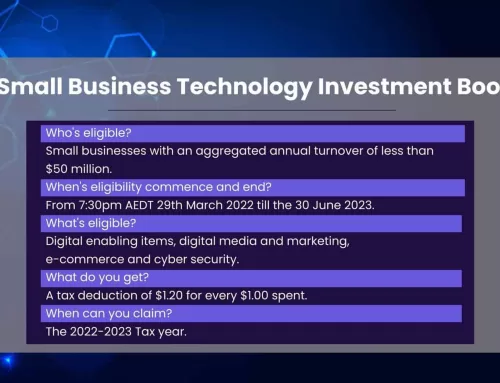What is the Holistic Marketing Concept?
This story was written by Kirsten Goode at Encompass Marketing and inspired by articles listed below.
According to Small Business Trends, Holistic Marketing considers a business and all its parts. It sees a business as one entirety. As a result, it gives a shared aim and purpose for each activity within a business and to everyone related to it. It thinks about a business’s place in the wider society, where it fits into the broader economy and how it impacts the lives of its customers. What this means is that everything matters in marketing!
Holistic Marketing is a 360 degree perspective with your customer placed very firmly in the middle.
If successfully implemented, a holistic marketing strategy can increase the efficiency of your communication, harmonize your business processes, boost your brand awareness, and help identify your brand values. And above all, sell loads of your products and services.
What are the 4 broad components of holistic marketing?
The holistic marketing concept is made up of 4 core components. These components break down the definition of holistic marketing into 4 clearly defined areas.
Relationship Marketing
◎Customers ◎Employees ◎Partners ◎Financial Community
Relationship marketing is all about building strong, long-lasting relationships with all the people connected to your business. Whether its customers, employees, suppliers, vendors, regulatory agencies, or even competitive firms. All of these relationships play a part in the success or failure of your business.
Customers no longer want someone to just sell them a product, they want to experience the brand as a whole.
Relationship marketing focuses on establishing relationships that are retained and grown over time. It steers away from simply selling products and focuses more on customer satisfaction and retention, as well as building customer loyalty.
It’s also about building strong relationships with your financiers, your suppliers and your vendors. The last few years is a great example of why this is important. Supplies of certain products have dwindled and the supply chains cut or delayed due to the pandemic. This has meant that some businesses have struggled not with demand but supply.
Having strong long-lasting relationships with your suppliers and vendors could mean the difference between getting your products into the customers hands or not. A strong relationship with your finance providers and product suppliers can also help your agility in launching new products quickly as the market or circumstances demand.
Integrated Marketing
◎Communications ◎Products & services ◎Channels ◎Price
The integrated marketing component of a holistic marketing strategy is where;
- the business delivers a consistent message throughout all its channels and through all of its departments and,
- The marketing strategy is designed with all activities of the business in mind.
Your marketing strategy should involve every single part of your business.
You are failing in your integrated marketing efforts if your sales team sell a product before the customer service team are made aware of it. Or your finance or HR team have no idea or no interest in the products you are offering.
Customers these days expect a far higher standard of business connectivity than ever before. Every part of the business should be aware of, and connected to, your overall marketing effort and all should be committed to achieving the same business goals and objectives.
Activities including advertising, public relations, direct marketing, online communications, and social media marketing, all work in sync with one another to ensure a consistent brand and brand experience and perception.
Internal Marketing
◎Marketing Department ◎Senior Marketing ◎All Other Departments
Your staff should all be brand advocates.
Sharing your social media posts. Mentioning your products in a Facebook group when a recommendation is requested for your industry. Promoting your products to your suppliers. These are all examples of how your employees can support your business marketing. However, this sort of advocacy needs to be authentic. The below factors can help your staff build passion for your products and your business:
- Making your internal marketing strategy easier to achieve.
- Building a healthy work culture and happy work environment.
- Including your whole business in product launches and product training.
- Letting your staff experience the products for themselves.
Your staff should all be data collectors – helping build your analytics into a robust measuring system that collects customer feedback from all channels.
Coming from a customer service environment, it was always obvious to me where you get your best intel from. Whether its picking up mistakes in marketing material, information on your competitors, getting ideas on new products and existing product tweaks, or finding out what channels are working best. Your customer touch points should all be collecting data. What good is a fantastic online campaign measurement strategy if it fails to include sales made in store or on the phone.
And it doesn’t stop there. Your marketing team need to work closely with;
- accounting and finance – to find out the exact budget needed for each project.
- HR – to find the right kind of people to effectively understand and communicate with your target markets and,
- admin and operations – to devise a plan to train and retain these people.
All departments should have input into how these products will be developed, priced, launched and sold. This will not only reduce departmental conflicts across the business, it will also lead to greater roll-out efficiency and synergy in the marketing activities presented to potential customers.
If your staff are happy, your customers are happy!
Performance Marketing
◎Sales ◎Ethics ◎Brand & Customer Equity ◎Environment ◎Social ◎Governance
Marketing in the 2020’s goes beyond sales revenue. Today’s marketers interpret what is happening to market share, customer loss rate, customer satisfaction, product quality, and other measures. They also consider how legal, ethical, social, environmental and governance concerns will effect their marketing activities and programs.
As people become more aware of a business and its brand, they are also more curious about how this brand interacts with society and the environment. Consumers are demanding more responsible behaviour and as a result will move their loyalty to a brand that shares their beliefs. Some are even willing to pay a higher price on products if the brand can show how they are reducing their environmental footprint or making a positive contribution to the community they operate in.
You can have a brilliant marketing campaign, or a high-profile brand fail miserably if you become better known for your poor environmental record or your treatment of your staff. Let’s face it, no one wants to hear that customers money and company employees have paid for something as extravagant as, hypothetically speaking, a CEO’s trip into space if that same business has had negative publicity for its treatment and payment of their staff.
Does Holistic Marketing work for small business?
Holistic Marketing makes brands more consistent across all aspects of their marketing channels and messaging. It provides an opportunity for every employee to have input into marketing strategy and allows processes to be designed with all facets of the business in mind.
It is therefore a great tool for small business to use to create a strong brand with a motivated, confident, and cohesive team culture. As a result, holistic marketing can help your small business get more out of its marketing efforts by utilising the whole business to promote business growth.
If you would like to discuss how a Holistic Holistic Marketing approach can work for your business, give us a call today.
https://everythingwhat.com/what-is-holistic-marketing-concept-with-example
https://www.analyticssteps.com/blogs/all-about-holistic-marketing
https://smallbiztrends.com/2019/08/what-is-holistic-marketing







Keep In Touch